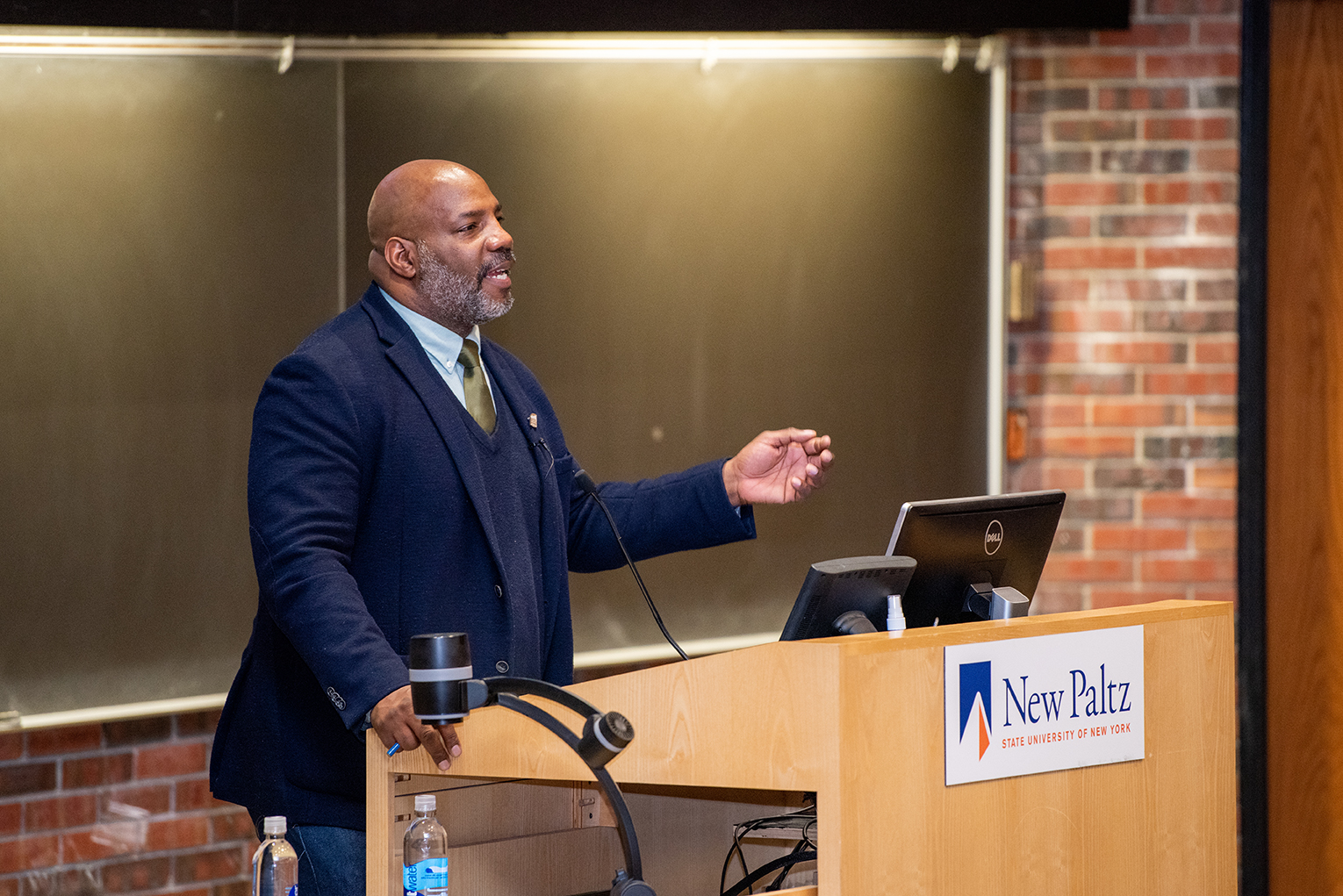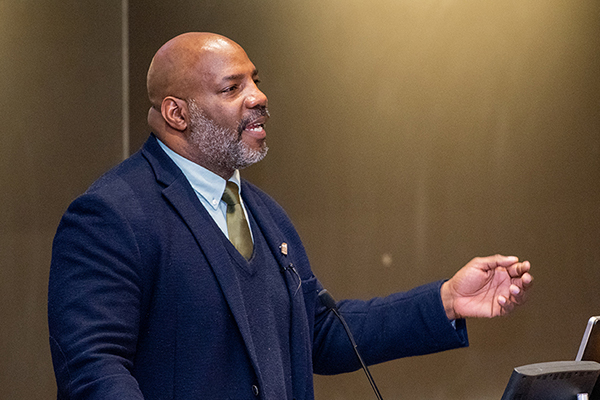Jelani Cobb discusses what’s gained, and what remains, when we revise history

Award-winning historian and journalist Jelani Cobb’s March 11 lecture at SUNY New Paltz touched on a topic of immediate relevance to the campus community: our collective reevaluation of historical figures who do not live up to contemporary ethical standards, and how this process affects our social relationships and our democratic institutions.
“As we come to know more, we come to understand the world in a different context,” Cobb said. “When we understand more about our own psychology and who we are as people, we’re able to have a more informed perspective on the people who came before us. This is a good and important process – a means of bringing ourselves more closely in line with our understanding of the world.”
In his first public appearance as SUNY New Paltz’s 2019 James H. Ottaway Sr. Visiting Professor of Journalism, Cobb described his experience reporting in South Carolina after the 2015 murder of nine congregants at the Emanuel African Methodist Episcopal Church.
He witnessed the removal of the Confederate flag from the South Carolina State Capitol and continued to follow the story as more municipalities took down monuments associated with slavery and racial discrimination.
“These monuments find themselves imposed in the present in all different kinds of ways, and we tumble through the generations with a head of confusion about these questions, never really sure how to resolve them,” Cobb said. “These vexing parts of history pop up at inopportune times, again and again, forcing notable, foundational institutions across the country to grapple with difficult legacies.”
Cobb, the Ira A. Lipman Professor of Journalism at Columbia University’s School of Journalism, acknowledged that colleges and universities have frequently been at the center of these dialogues, and noted SUNY New Paltz’s own recent reconsideration of the names of Hasbrouck Dining Hall and the nearby residence halls.
“I’ve spent all of my life in institutions of higher education, beginning with the one that accepted me as a freshman,” he said. “The work that we do, the conversations we have, the difficult dialogues that we undertake and the debates that we participate in, are not simply abstract exchanges. This is the actual work of preserving the idea of democracy, and turning it into a reality in the United States.
“I commend you for being willing to engage in this process, asking these questions and not flinching about where the path of history might lead you.”
Cobb emphasized that the work of building a truly inclusive culture at New Paltz must be an ongoing process of inviting and empowering new people and new generations to help shape the present and future of the College.
“An inclusive institution cannot be the same as an institution that has simply added some more different people into it,” he said. “Becoming inclusive means the institution has fundamentally become something else. The change in names, the change in customs, the adaptation of new customs – this is all part of what you get when you create a new, inclusive, and therefore democratic institution.”
As the 2019 Ottaway Visiting Professor of journalism, Jelani Cobb will return to campus in April to teach a one-credit journalism seminar titled “The First Draft of History.”
He will also participate in the annual “Ottaway Q & A” with President Donald P. Christian. That event will be held on Thursday, April 11, and is free and open to the public.
More information about the Ottaway Visiting Professorship, including biographies of previous professors, can be found at https://www.newpaltz.edu/ottaway/.

